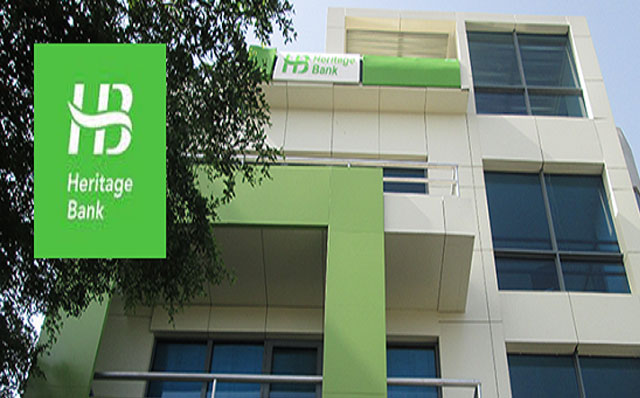At a media briefing marking the conclusion of the International Monetary Fund (IMF)/World Bank Group Spring Meetings in Washington DC, Minister of Finance and Coordinating Minister of the Economy, Wale Edun, revealed that Nigeria’s economic reforms received strong commendation from the international community, hailed as the most credible pathway to sustainable prosperity. Edun noted that with macro-economic stability now taking root, the government’s focus has shifted to accelerating growth to at least 7 per cent annually, a critical threshold needed to lift millions of Nigerians out of poverty. He also discussed an array of economic issues. Eromosele Abiodun and Nume Ekeghe presents the excerpts
What was the key message from your meeting with the IMF/World Bank regarding Nigeria’s economic direction?
Nigeria’s reform efforts are strongly appreciated by the international community as the most credible way to economic prosperity. In-fact, the U.S State Department described Nigeria’s reforms as an economic miracle. There is a strong global appetite for investments in Nigeria and International Finance Corporation (IFC) continuing investment in Nigeria will be a strong signal for many more to come for the Nigerian Private Sector. Fiscal consolidation remains a critical element of the Nigerian Policy menu at this time and Nigeria agrees on the overarching theme of the 2025 World Bank Group/IMF Spring Meeting that Job creation is the sure pathway to poverty reduction and improved livelihood.
How does the downward pressure on oil prices indirectly affect fiscal sustainability and budget performance?
The era of reciprocal tariffs regime, as is called, was recently introduced earlier this month, does not affect Nigeria as much as others, and that’s because our major exports to the US which are oil and minerals are excluded from the reciprocal tariff regime. However, the indirect effect is there, and because of the global uncertainty and the volatility that followed in the financial markets, the oil price fell 20 per cent initially and was getting below $60. But as the weeks has went on, there has been a pause in the reciprocal tariff regime, that too has started to settle a little bit of the uncertainty and the oil price has moved back up, as you say, to about $65, as we all know, below the 2025 budget estimate. But the budget is a statement of intent, and you always have to calibrate. You always have to adjust to the actual reality on the ground and the funds available. And that is exactly what is being done. As the news of began to gather momentum, immediately the economic management team formed a subcommittee, which included various obvious ministries, projects and planning, the Budget Office, the central bank and so forth. That subcommittee was charged with just looking at and analysing and modeling what are the various scenarios under which we would be operating if this situation persisted. And in fact, it’s not all negative, sometimes these difficult situations provide opportunities. And I’ll give one example, our Minister of Health coordinating Minister of Social Welfare, immediately the announcement was made that USAID would be no longer funded by the US government. It meant that funding for antiretroviral drugs, funding for medicine for tuberculosis and malaria that Nigeria benefited from to the tune of $800 million or thereabouts, would no longer be available. His team immediately did the analysis, and he found out that by purchasing from cheaper sources and by cutting out some of the administrative expenses that were part of the package that came from USAID originally, we could get by with finding a quarter of that amount and yet still provide the health care to our citizens. And of course, this type of support is not to be forever. So, they, too, I suppose, have their point, but in terms of the reaction, as I say, the analysis is being done and presented to the economic management team and ultimately, to the Federal Executive Council, and further decisions will be made. But we must also remember that it is not just about the oil sector, but it is the primary source of foreign exchange and indeed of government revenue. We have a new team at NNPC. They have been charged with increasing production. So, if price goes down, but production goes up, you have a chance to make up for some of that deficit. They have been charged with minimising and rationalising cost, by looking for efficiencies across the board.
While the IMF and World Bank praised Nigeria’s reforms, there were also calls for the government to move to the next phase, which is increase spending on social protection, and ensure greater transparency in the oil sector. How is the government planning to respond to these expectations?
We have a robust revenue assurance initiative to automate and digitise even more than before, the revenue-earning agencies, ministries, and departments of government to make sure that what is paid by the public is received in the coffers of government. And of course, you know, we have with us the chairman of the Senate Committee on Finance, as well as the Deputy Chairman of the House Committee on Finance, and they are major players as far as the tax reform bill is concerned. And I think they can probably tell you better than I, but I think the imminent passing of that tax reform bill is on the horizon, and once it is passed, it does have in it the potential for increasing tax as a percentage of GDP. It does have in it the potential for increasing tax revenues.
Initially, there was a focus on concessional funding from organisations such as the World Bank, German, EU, French governments, and then ultimately funding, first from Nigerians in the diaspora. But that has run its course, and the focus now is on domestic revenue mobilisation. However, it now looks like the government is crowding out the private sector.
All revenue-earning areas that the government is involved are open to the private sector, and even the budget itself contains a line from privatisation, showing the intention of opening up the economy to the private sector. And that as you can well imagine, is a way of blocking and filling any gaps that might have risen from the fallout and the indirect effects. And the next stage, you ask, what the next stage is? The next stage is to go for growth. Having stabilised the economy, there is a plan, and we have 3.4 per cent growth on average for 2024 but in the last quarter, it was 3.84 per cent so it’s accelerating, speeding up, and the objective is to really double that growth. Unless we get to about 7 per cent per annum growth, we are not going to substantially reduce poverty and improve the lives of Nigerians. So that is the target. That’s a commitment, and the way to get it is by focusing on agriculture, increasing productivity, as well as making food more available, infrastructure, particularly the digital economy, where young people play with coding, with business support, with e-commerce and the like. And then also improving and increasing through structural reform, something that the governor of the central bank will be very much part of overseeing is improving access to finance. So, we’ll go with our suggestions and proposals, he will look at them from the regulatory point of view and hopefully pass them, thereby giving micro businesses, small and medium scale enterprises, as well as larger enterprises, better access to financing. In terms of the question of social protection, it is critical. The president promised to make sure that the poor and the most vulnerable are not left behind. We have a social direct benefit transfer program. It started and it wasn’t robust enough, and we stopped, and we went back to the drawing board. And now we have a standard that payments that are going out regularly, on a monthly basis, to people on the social register, each person is identified biometrically through a need, and each person has a digital methodology for reaching them. So, they are paid either through a bank account or through a mobile wallet. So, when you ask, who did you pay yesterday? How much did you give them, or when did you give it to him, that information can easily be provided. Right now, we are running at a rate of about 1 million, additional people are brought into the social register every month because we have a social register of about 20 million households and one person representing that household. However, not all of them have been captured biometrically and uniquely so. That’s the exercise that’s going on. The aim is to ramp up to about 3 million people being captured into that database every month, so that in no time, you have a database of the poor who can be reached at any time that the government needs to, not just for the existing direct benefit transfer program, but at any time, the government needs to reach and help these people. And finally, in terms of transparency, in terms of the oil sector in particular, there is a new team in NNPC, and one of the areas in which they will be tasked is to provide transparent, complete and regular data as required by Nigerians, and by the public as a whole. And in addition, one of the important ways of communicating to Nigerians is through data. So we have an exercise, a very urgent exercise, being carried out by a team to ensure that we raise the quality and we have first-class fiscal data on all aspects of government’s finances and consistency across all the areas that provide that Data, be it central bank, Debt Management Office, Budget Office, accountant general’s office. The idea is to have a robust, regular, up to date and transparent data to provide to the public.
A report recently revealed that Nigeria is now the fourth largest economy in Africa, what plans do you have to reverse this?
What matters is, as you’ve heard from the governor of the central bank and indeed myself, Nigeria is economically, and financially, in a very much better place than it was just a couple of years ago. We have a sound macroeconomic base, and good progress across all major indicators, including the ones that people really feel. Inflation is coming down, the exchange rate is stabilising, food prices are coming down. Based on that, the next step and stage is to build on that foundation, by maintaining the strength, the stability, and even resilience and as the governor mentioned during this recent crisis, the Nigerian economy and the Nigerian external sector and its monetary stability showed resilient. It was shaken, it was tested, and it showed resilience. People took their money, then they brought it back when they found out that there was nothing amiss. And I think it’s on that foundation that we now have to push to grow the Nigerian economy deliberately at least 7 per cent per annum, because below that, we’re not helping Nigerians fast enough. We’re not taking them out of poverty quickly enough. There’s a GDP rebasing coming, These are statistical factors, but the statistics that matter are the number of Nigerians being helped out of poverty, the number of young Nigerians being given good quality jobs in a growing economy.


